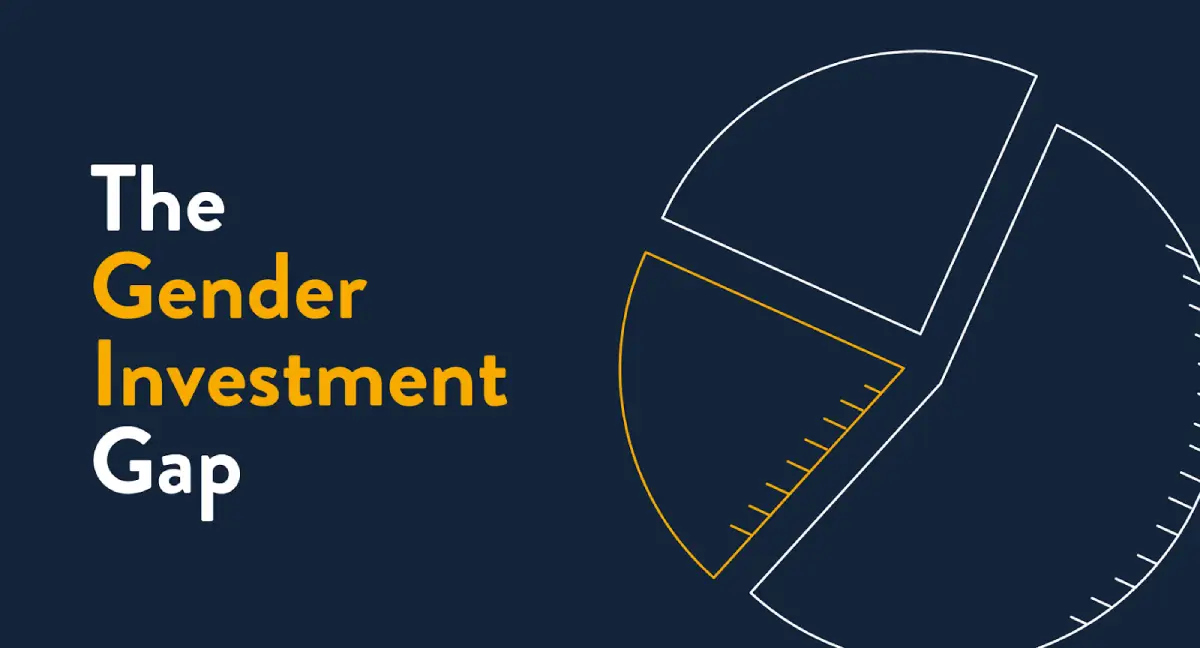
Investing provides the opportunity to grow your savings over time, however, having the confidence and financial means to get started can be a challenge, particularly for people on lower incomes. Whilst many businesses are working on reducing the gender pay gap, the latest ONS data reveals that the average salary for a woman in the UK is around £28,765 compared to men’s £41,850 — a difference of over £13,000. In turn, this leaves women with less disposable income and opportunities to invest for the future.
To help determine what this could mean for women’s investment opportunities, we’ve taken a closer look at the disparity in earnings between men and women across the country. Our research shows the difference between what men and women could save if they invested 7.5% of their salary each year up until 2030.
Bearing in mind that investing may seem daunting to beginners, Shepherds Friendly’s Chief Finance Officer Derence Lee, also reveals his top tips for those looking to embark on their investment journey.
How is the gender pay gap impacting women’s potential investment returns?
Due to the gender pay gap, if both men and women invested 7.5% of their annual income every year into stocks, the value of their investments is likely to vary significantly.
In fact, our research found that when it comes to investing, men’s investment pots could be worth around £10,362 more than women’s by 2030, provided they don’t touch the pot until the end of 2030.
If men invested 7.5% of their annual salary every year from 2023 to 2030, they could build up a savings pot of around £33,142 on average, based on an annualised return rate of 3.77%, while women can expect to see their investment pot to be valued at around £22,780.
However, with average salaries differing depending on location across the UK, the difference between what men and women can earn from a 7.5% investment of their salary can differ significantly across the country. With this in mind, we’ve revealed the cities with the biggest earning gaps, and therefore the biggest investment gaps, for male and female investors.
London is home to the biggest gender investment gap
From a seedlist of 40 cities, London has ranked as the UK city with the biggest gender investment gap. While average annual salaries in the capital are substantially larger than in any other city in the UK, there’s a £17,903 difference in the average yearly income of men (£56,155) and women (£38,252).
If men and women in London had started to annually invest 7.5% of their income at the start of 2023 in stocks, the research shows that there would be a difference of £14,178 in their investment savings pots by 2030. Men would see their investment pot soar to around £44,470, while women would see their investment pot worth an average of £30,292.
Brighton & Hove comes in second place, with men’s investment savings likely to be worth £12,250 more than women’s by 2030. The coastal city sees a big difference in salaries for men and women, with men taking home an average of £41,821 per year, whilst women earn around £26,352.
In third place is Exeter. If men and women in this city both invested 7.5% of their salaries into stocks, the gap between the total value of their investment pots by 2030 would be around £11,979.
It’s important to note, that with the current active efforts by the government and businesses to reduce the gender pay gap, these stats might differ by 2030.
Top 10 cities with the largest gap in investment savings between men and women by 2030:
| Rank | City | Avg. male salary 2023 | Avg. female salary 2023 | Male total value of investment by 2030 | Female total value of investment by 2030 | Difference between total investment values by 2030 |
|---|---|---|---|---|---|---|
| 1 | London | £56,155 | £38,252 | £44,470 | £30,292 | £14,178 |
| 2 | Brighton & Hove | £41,821 | £26,352 | £33,119 | £20,869 | £12,250 |
| 3 | Exeter | £38,747 | £23,620 | £30,684 | £18,705 | £11,979 |
| 4 | Gloucester | £39,951 | £24,895 | £31,638 | £19,715 | £11,923 |
| 5 | Bradford | £39,153 | £24,907 | £31,006 | £19,724 | £11,282 |
| 6 | Southend-on-Sea | £44,056 | £29,891 | £34,889 | £23,671 | £11,218 |
| 7 | Bournemouth | £39,956 | £25,977 | £31,642 | £20,572 | £11,070 |
| 8 | Oxford | £41,025 | £27,502 | £32,488 | £21,779 | £10,709 |
| 9 | Leeds | £38,702 | £25,875 | £30,649 | £20,491 | £10,158 |
| 10 | Milton Keynes | £44,079 | £31,684 | £34,907 | £25,091 | £9,816 |
*The table shows the difference between men and women’s average earnings from investing 7.5% of their average annual salary each year. Whilst the gender pay gap may improve or worsen between now and 2030, we’ve applied a salary increment rate of 3.22% per year up until 2030 to ensure average salary increase has been taken into account.
7.5% of salary is a suggested investment amount by experts. Please note that this is an average figure and the amount you invest can differ depending on your financial situation and personal financial goals. It’s also important to note that your capital is at risk when investing, and you may not always get back the money that you put in.
Dundee is home to the smallest gender investment gap
Dundee is the UK city with the smallest gender investment savings gap, due to the gender pay gap being significantly lower here. Men earn a salary of around £29,439 on average each year in the Scottish city, and women aren’t too far behind this, earning around £27,126.
If both men and women in Dundee invested 7.5% of their salaries into stocks until 2030, on average men would see their investment pots increase to around £23,313 in total, and women’s investment savings would be worth around £21,482. This leaves an investment earnings gap of just £1,832.
Wolverhampton has the second smallest gender investment savings gap, with a difference of £2,958. Meanwhile, Blackpool comes in third with women’s investment pots averaging £4,580 less in value than men’s.
The 10 cities with the smallest gap in investment savings between men and women by 2030:
| Rank | City | Avg. male salary 2023 | Avg. female salary 2023 | Male total value of investment by 2030 | Female total value of investment by 2030 | Difference between total investment values by 2030 |
|---|---|---|---|---|---|---|
| 1 | Dundee | £29,439 | £27,126 | £23,313 | £21,482 | £1,832 |
| 2 | Wolverhampton | £31,653 | £27,918 | £25,067 | £22,109 | £2,958 |
| 3 | Blackpool | £28,628 | £22,845 | £22,671 | £18,091 | £4,580 |
| 4 | Glasgow | £35,527 | £29,249 | £28,134 | £23,163 | £4,972 |
| 5 | Swansea | £33,599 | £27,045 | £26,608 | £21,417 | £5,190 |
| 6 | Newcastle | £35,558 | £28,773 | £28,159 | £22,786 | £5,373 |
| 7 | Nottingham | £28,931 | £21,972 | £22,911 | £17,400 | £5,511 |
| 8 | Norwich | £35,076 | £27,193 | £27,777 | £21,535 | £6,243 |
| 9 | Stoke-on-Trent | £31,557 | £23,661 | £24,991 | £18,738 | £6,253 |
| 10 | Newport | £34,316 | £26,355 | £27,175 | £20,871 | £6,304 |
*Notes for the table above also apply to this table.
Why might women be less likely to invest than men?
The gender pay gap could be playing a big part in why women could be saving less than men when it comes to their investments. However, women are also less likely to invest in the first place with recent research revealing that currently, just 48% of women have stock market investments, compared to 66% of men.
In a survey we conducted in 2023, we also found that men are much more confident in their understanding of investing, with almost two in five (39%) saying they feel knowledgeable on the topic compared to just a quarter of women. Our research also showed that 45% of women feel like investing is too risky for them.
While there is always a certain degree of risk involved with investing, it’s still a great way for both men and women to potentially secure greater financial stability and freedom for themselves in the future.
Five expert tips on getting started with investing
There can be a lot to get your head around when you take the first step on your investment journey but to get off on the right foot, it’s a good idea to put the research in and then gradually build a diversified investment portfolio. This involves spreading your funds across various assets like stocks, bonds, and commodities so that you’re not relying on just one savings pot.
For more help getting started, Shepherds Friendly’s Chief Finance Officer, Derence Lee, reveals his top tips for new investors:
1) Set clear financial goals
Before investing your money, it’s important to think about what your financial goals are. Whether you’re aiming to build up wealth for retirement or saving to buy a home, having an understanding of your objectives will help guide your investment strategy.
Setting financial goals will also help motivate you to keep contributing towards saving for your future. It not only allows you to measure your success, but also helps you keep track of how you’re meeting your goals.
2) Build an emergency fund
Before you start investing, make sure that you have an emergency fund in place. Experts suggest that you have at least three months’ worth of living expenses saved up somewhere safe and accessible to you, should you ever need to use it for a large unexpected expense or loss of income.
It’s good to have this in place to fall back on when you experience financial setbacks. For someone with an investment, it’s much better to rely on your emergency fund to cover you when you need it than to have to sell your assets at an unprofitable time.
3) Educate yourself
Take some time to learn about the different investment options available to you in the UK. Stocks, real estate, gold, and bonds are some of the main assets that you can invest in. Learning about them will help you to work towards your financial goals.
At Shepherds Friendly, we offer an Investment ISA which allows you to invest in shares, funds, bonds, and other assets. This gives your money a chance to grow over the long term, especially as the returns your ISA makes are tax-free.
Keep in mind though, when you invest your capital is at risk. Understanding the potential risks as well as the rewards of investing is important, as then you can manage your money more effectively and get closer to your financial goals.
4) Start small and gradually increase
If you’re new to investing, it’s a good idea to start with a small amount of money before gradually increasing your investments as you gain confidence and experience. This way, you can get used to the process while also making yourself less vulnerable to market fluctuations.
Investing often comes with risk, as assets can lose value over time, so it’s important to keep this in mind. However, different investments offer varying levels of risk, so it’s recommended that you explore what option works best for you before you commit.
It’s also recommended that you diversify your investment portfolio by investing in different ways. This reduces the risks involved as you’re spreading your money out, therefore you’re not reliant on one form of investment.
5) Consider seeking professional advice
If you’re unsure about the best investment type for your financial goals, consider consulting a financial adviser. They can help tailor a plan for you based on your objectives, risk tolerance, and financial situation.
Speaking to professionals can also help make sure that your investment portfolio aligns with your financial goals going forward. Advisers can suggest cost-effective investment options to curtail the potential fees and expenses involved that could otherwise eat into your returns over time.
Sources & Methodology
From a seedlist of the 40 most populated cities in the UK, Shepherds Friendly revealed the earnings both men and women could make from their investments by 2030. Cities with missing ONS data were excluded and replaced with the next most populated city.
With financial experts suggesting we should invest between 5-10% of our income, Shepherds Friendly took 7.5% of 2023 yearly incomes for both men and women in the UK, and the cities in the seedlist, from the ONS. Mean annual pay is taken from the data set, which covers both part time and full time workers across the UK. Please note that salaries before tax are taken.
To find out how much both men and women can earn from their investments, they took the average return on investment (ROI) for stock investments, which is 3.77%.
Shepherds Friendly took 7.5% of the respective average annual salaries and applied the relevant ROI percentage to the amount to be invested each year from 2023 – 2040. To ensure inflation of salaries is taken into account, Shepherds Friendly applied a salary increment rate of 3.22% per year.
To find investment earnings from these calculations, total earnings was minused from the total investment power from 2023 – 2030.
Please note: We have made every effort to ensure that external links are accurate, up to date and relevant, however we cannot take responsibility for pages maintained by external providers.
Remember: When you invest, your capital is at risk you may get back less than you have put in. The value of the ISA will depend on the performance of the investments and any bonuses cannot be guaranteed. Additionally, if investment conditions are poor, Shepherds Friendly may apply a Market Value Reduction (MVR).


